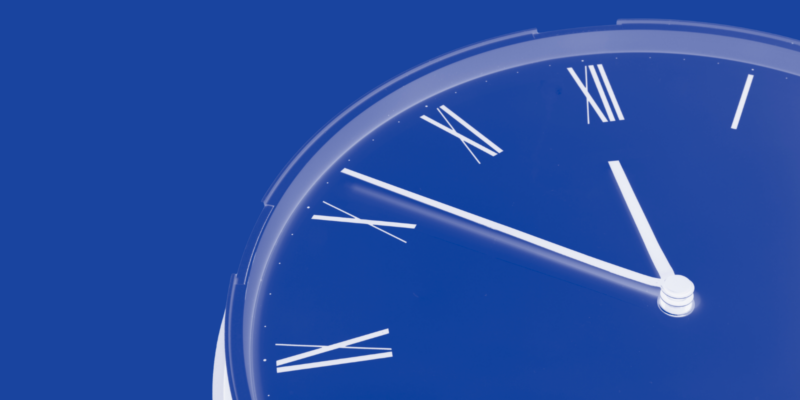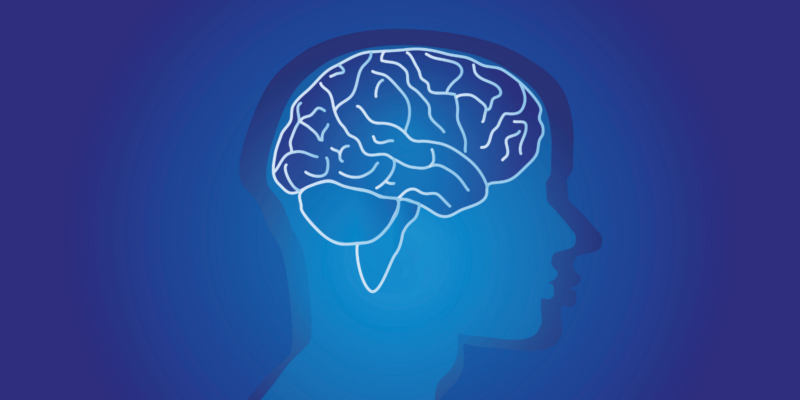Hypothyroidism, depression and anxiety
Depression and anxiety are more common in people with hypothyroidism. Is this merely coincidental? What are the possible reasons for this? When I say hypothyroidism, I am talking about the commonest type, which is Hashimoto’s Thyroiditis.
Do people with hypothyroidism and mood issues need different treatment? Do they feel better at a different TSH level? More importantly, is there a personal “Thyroid Set Point”? Does the presence of thyroid antibodies decide how you feel?
In this article I will answer these questions.
How common is it?
Several studies have shown that people with hypothyroidism, even under treatment, have a higher incidence of depression and anxiety than those without hypothyroidism. This information is not new. We have known about the relationship between mental illness and hormones for over 200 years! ((Ref))
A meta-analysis (an analysis of several papers) reported in JAMA Psychiatry indicated that people with autoimmune hypothyroidism across all ages, men as well as women, have more anxiety and depression when compared with people without hypothyroidism. ((Ref))
A study reported in the Indian Journal of Endocrinology and Metabolism, 2016 ((Ref)) looked at 100 people (mostly women) with hypothyroidism. About 60% of them reported anxiety or depression. Interestingly, the most common depressive symptom among men was a depressed mood, while the women had more gastrointestinal symptoms.
BOTTOM LINE
Hypothyroidism and depression have overlapping symptoms, like low energy, lethargy, fatigue etc. Therefore, if you have hypothyroidism, you need to be screened for depressive symptoms. Likewise, if you have depression and anxiety, then your thyroid function has to be checked. However, the treatment for depression doesn’t have to START with antidepressant medications.
The Brain and Thyroid
Thyroid hormones are crucial for brain development, function and growth. The effect of maternal hypothyroidism and the resultant severe mental retardation in newborns is evidence enough to convince us about the importance of thyroid hormones for the brain. ((Ref))
What about the adult brain? In a brain MRI imaging study, researchers studied adult men and women with hypothyroidism. They found a decrease in brain volume in an area called the right hippocampus. The hippocampus is vital for memory consolidation. ((Ref))
“Brain Hypothyroidism”: Some researchers have hypothesized that in people with depression and hypothyroidism, there may be a condition of local hypothyroidism in the brain. The levels of thyroid hormones outside the brain remain in the normal range. There may be a thyroid hormone transport problem across the blood-brain barrier or an issue with the brain’s deiodinase enzyme. ( I have discussed the deiodinase enzyme systems in this article on the treatment of hypothyroidism) ((Ref))
Thyroid, brain serotonin and depression: Thyroid hormone metabolism is associated with the brain serotonin system. Serotonin is a neurotransmitter. Neurotransmitters are chemicals made by nerve cells to transmit messages.
How are depression and serotonin related? The serotonin hypothesis of depression.
We do not know the exact cause of depression. It is a complex interplay of genes, early-life stress, nutritional deficiencies, increased chronic inflammation, lifestyle and environmental factors, the gut microbiome.
Several hypotheses have been proposed to explain depression.
The serotonin hypothesis of depression suggests that a reduction in serotonin levels leads to an increased risk of depression. This is why selective serotonin reuptake inhibitors (SSRIs) are used to treat depression. However, depression is not merely the deficiency of a single neurotransmitter. It is more complicated than that.
Serotonin in the gut: Certain cells in the gut, called the enterochromaffin cells, are the largest producers of serotonin in the body. The Gut-Brain-Thyroid axis explains why Functional Medicine practitioners like me address the gut first! ((Ref))
What is a normal TSH level?
Thyroid Stimulating Hormone (TSH) is tested routinely as a part of thyroid function testing. It is only ONE test among the battery of tests that are necessary for assessing thyroid function. Unfortunately, some practitioners still think that testing for only TSH is adequate to decide about thyroid function and treatment.
What is a normal TSH reference range? This question has lead to animated discussions amongst doctors. Many doctors have been accused of being “micromanagers of TSH” :-)! However, as this excellent article by Endocrinologist Dr. Bernadette Biondi, Associate Professor at the University of Naples in Italy, says:
“First, it is essential to accurately analyze the results of the TSH and free thyroid hormone assays before deciding whether a specific TSH level is abnormal or not. Clinicians should also consider gender, age, physiological and pathological conditions, drugs, symptoms, and quality of life.“
JCEM September 2013
Is There A Specific TSH Level For The Treatment of Depression?
In a 2017 research article reported in BMC Psychiatry, the authors aimed to detect a new TSH cutoff value in hypothyroidism based on depression symptoms. Researchers included 174 people with hypothyroidism, mostly women, who were taking T4. They were tested for TSH, T4, and T3. Researchers used the Beck Depression Inventory Questionnaire. Of the 174 people, 116 had symptoms of depression. ((Ref))
The lab range for TSH in this study was 0.5–5 MIU/L.
Based on the patients’ depression score on Beck’s Depression Inventory, a TSH cutoff point of 2.5 mU/L was considered optimal for people with depression.
“My reports are okay, but I don’t feel well”
Have you experienced this? You have “brain fog,” feel tired, anxious ….just not yourself. You get your lab reports, and your doctor says, “Your reports are all “normal”. Maybe it is stress.” Or “It is all in your head.” The last one is probably true, but not in how it is usually (mis)understood! If this is how you feel, you are not alone!
Amongst physicians, the treatment of hypothyroidism is considered relatively straightforward. However, the lack of psychological well-being experienced by patients on “adequate” doses of T4 indicates that there is room for improvement.
In a community-based study from the UK, people on thyroxine (T4) therapy was sent a General Health Questionnaire. All of them had had a TSH test in the last 12 months. ((Ref))
The researchers found that people with hypothyroidism on T4 therapy reported “significant impairment in psychological well‐being”, despite having TSH levels in the normal laboratory range.
In Functional Medicine (for that matter, any medicine), we say, “Treat the patient, not just the lab numbers.” But don’t ignore the lab numbers either. “Contextual medicine” versus reductionist medicine.
Thyroid antibodies and depression:
Several studies have shown the associations between Hashimoto’s Thyroiditis and major depressive disorder, bipolar disorder and postpartum depression.
Hashimoto’s thyroiditis is diagnosed when you have hypothyroidism along with positive Anti-TPO Antibodies and or Anti-Thyroglobulin antibodies. Therefore, if you haven’t tested for thyroid antibodies, you do not know if you have Hashimoto’s. ((Ref))
Additionally, the presence of thyroid antibodies may decide the response to antidepressant medications like escitalopram. ((Ref))
Is there a personal Thyroid Set-Point?
Considering that many people feel unwell despite “normal” thyroid laboratory tests, is there a personal thyroid set-point where you feel your best? What this means is that each one of you may feel your best within a very narrow range of thyroid hormone levels, despite being “in the normal range”…..a personalized level.
Experienced clinicians usually figure this out the long way by frequent testing, tracking symptoms and changing the dosage, but is there a better and more predictable way?
As reported in this paper ((Ref)) by Dr. Melvin Leow and Dr. Simon Goede, using a complex algorithm, they figured out a predictable way to detect individual thyroid set points. (Thank you for taking the time to explain this to me!). They have generously agreed to share the algorithm. ((Ref))
Treatment Considerations:
T4 or T3T4 combination: Should you use T4 only or a combination of T4 and T3? What about desiccated thyroid glandular? (In this article I have discussed this in detail).
SSRIs or TCAs for depression: Since thyroid hormones are related to the brain’s serotonin system, it may be worthwhile to consider SSRI drugs like Fluoxetine and Escitalopram. ((Ref))
TCAs like Amitriptyline and Doxepin may cause weight gain. Therefore, it may be prudent to recommend a weight-neutral drug.
Selenium supplementation has shown benefits in reducing thyroid antibodies and improving well-being. It is important to measure blood selenium levels because high levels are associated with a risk for diabetes. ((Ref)) ((Ref))
Should You Stop Eating Gluten?
Antidepressant treatment augmentation with thyroid hormones without hypothyroidism.
While this article is about hypothyroidism and depression, several studies have looked at using thyroid hormones, both T3 and T4 monotherapy along with antidepressant medications in people with treatment-resistant depression.
Adding T3: In a study titled “A Comparison of Lithium and T3 Augmentation Following Two Failed Medication Treatments for Depression”, people who were already on two antidepressant medications but did not feel better were given either Lithium or T3.
Both groups did better. However, there were more side effects in those taking lithium versus those on T3. The lesser side effects prompted the researchers to recommend that if clinicians had to choose between lithium and T3, it might be better to go for T3.
One limitation of this study is that they didn’t measure levels of thyroid hormones before or after prescribing T3. ((Ref))
Adding T4: A few studies have used very high doses of T4 (up to 600 microgram/day) and seen benefits in augmenting the treatment of depression. ((Ref))
Bottomline: There is adequate evidence to justify a trial of adding thyroid hormones in the treatment of resistant mental health challenges, but it is nuanced.
- T3 may be more effective than T4
- Very high doses of T4 may be necessary.
- Women may do somewhat better than men.
- Additional Thyroid hormones may be beneficial with Tricyclic Antidepressants (Examples: Amitriptyline, Doxepin, Imipramine) rather than SSRIs (Examples: Citalopram, Fluoxetine, Escitalopram, Sertraline)
Key Elements
- People with hypothyroidism have a higher incidence of depression and anxiety.
- If you have hypothyroidism, you need to be screened for depressive symptoms. Likewise, if you have depression and anxiety, then your thyroid function has to be checked.
- Treatment of hypothyroidism and depression is nuanced. Reaching the ” accepted lab range” for hormones may not be enough.
- Brain hypothyroidism. Serotonin, thyroid and gut.
- The presence of thyroid antibodies and mood disorders.
- Choosing medications for depression.
- Thyroid Set-Point.
Other articles
My TSH is high, but T4 and T3 are normal.
Hashimoto’s and hypothyroidism, what is the difference?


